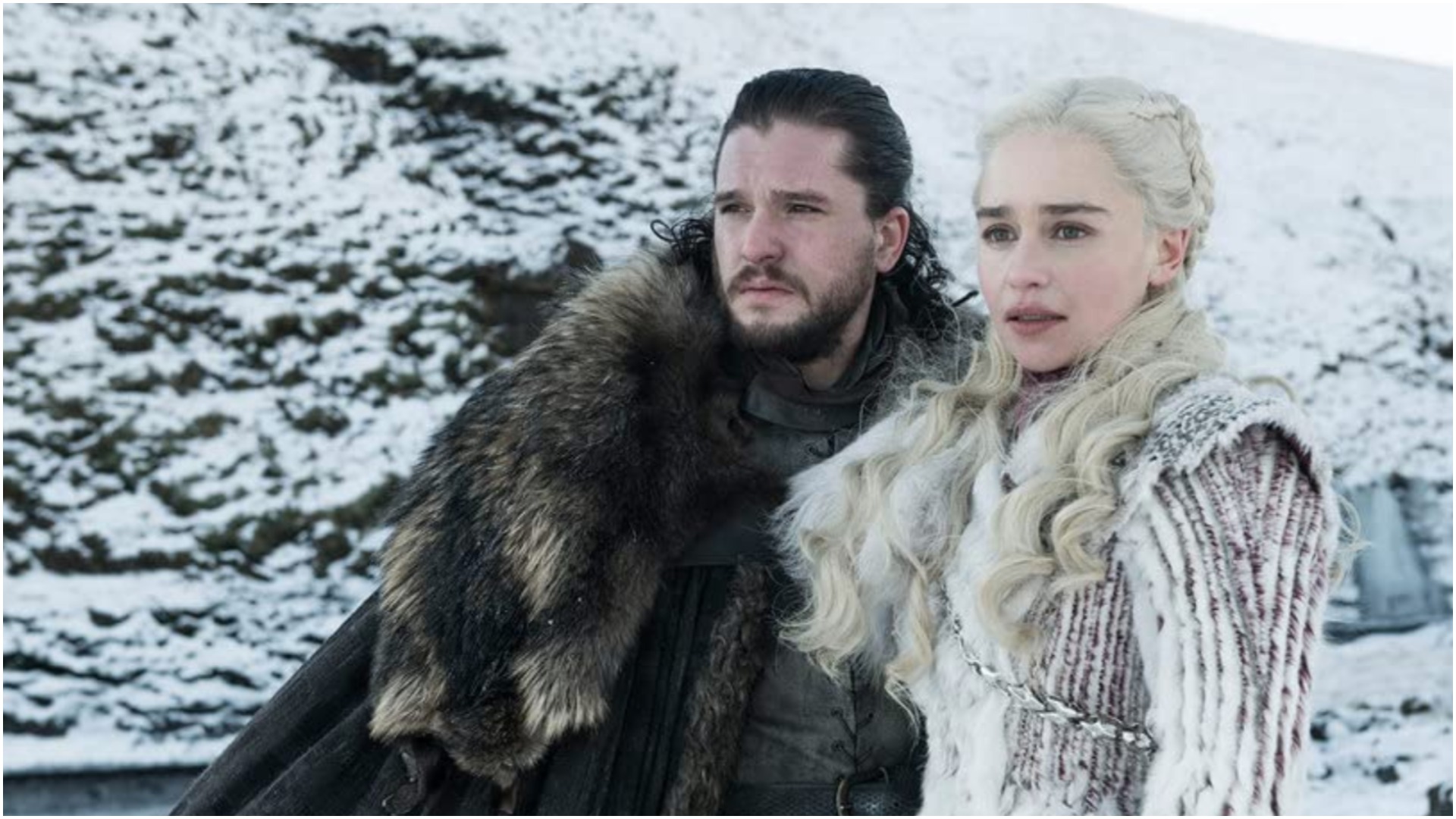House of the Dragon has a major Game of Thrones reference – here's what it means
Warning: Major spoilers ahead for House of the Dragon episode 1! Turn back now if you haven't watched the first episode yet!
House of the Dragon might be set 172 years before the birth of Daenerys Targaryen, but it still finds a way to link directly to the events of Game of Thrones. Towards the end of the first episode, King Viserys Targaryen tells his daughter – and soon-to-be heir – Rhaenyra about a prophecy passed from Targaryen to Targaryen, all about the end of humankind.
As Viserys explains, King Aegon Targaryen – that's Aegon the Conqueror, who won Westeros for the family decades prior – foresaw the end of man thanks to a winter coming from the North. He predicted that a Targaryen would need to be on the Iron Throne to unite the Seven Kingdoms against the apocalyptic threat. He called this the 'Song of Ice and Fire.' Cast your minds back to Game of Thrones season 8, and these events play out almost exactly – and we explain all right here.
How does the Song of Ice and Fire connect to Game of Thrones?

A Song of Ice and Fire is the name of George R. R. Martin's series of novels, which the Game of Thrones TV show is based on. Throughout the original show, the White Walkers were a major threat to Westeros. Eventually, the danger of the Night King could no longer be underestimated, and Jon Snow set about trying to get help to face the undead. He enlisted Daenerys Targaryen and her armies, and, though they tried to convince Cersei Lannister to help, she betrayed them and did not send any aid for the fight. Ultimately, the combined armies of humanity triumphed over the Night King, who was killed by Arya Stark at the Battle of Winterfell.
Jon Snow, of course, turned out to be a Targaryen himself: another Aegon, son of Rhaegar Targaryen (that's Daenerys' brother) and Lyanna Stark (that's Ned Stark's sister). As Jon was trying to unite the Seven Kingdoms against the White Walkers, he was the King in the North, though not the King of Westeros – so he's more or less this fabled Targaryen king.
The biggest shock here, though, is that the Targaryens actually knew about the coming Long Night centuries before it happened. As George R. R. Martin explained to Vanity Fair, that has a big impact on their actions. "I don't want to give too much away, because some of this is going to be in the later books, but this is 200 years before the events of Game of Thrones. There was no sell-by date on that prophecy. That's the issue," he revealed. "The Targaryens that know about it are all thinking, 'Okay, this is going to happen in my lifetime, I have to be prepared! Or, It's going to happen in my son's lifetime.' Nobody said it's going to happen 200 years from now. If the Dance of the Dragons [the Targaryen civil war] had not happened, what would've happened to the next generation? What would've happened in the generation after that? Yeah, there's a lot to be unwound there."
Is the Song of Ice and Fire prophecy in the books?
Something very similar to this prophecy can be found in Martin's books. Rhaegar Targaryen is particularly preoccupied with a prophecy that made it into the show: the prince that was promised, said to be destined to rescue the world from darkness. In the TV show, belief in this figure, later revealed to be the prince or princess, is spoken of by red priestess Melisandre, and is connected to the Lord of Light. Melisandre believed both Daenerys and Jon Snow to be tied to this prophecy, and both eventually triumphed over the Long Night at Winterfell.
In A Clash of Kings, the second of Martin's novels, Daenerys sees a vision of her brother after the birth of his son Aegon – but this is a different Aegon to Jon Snow. This Aegon was Rhaegar's son with Elia Martell, who was killed during Robert Baratheon's uprising. "He is the prince that was promised, and his is the song of ice and fire," says Rhaegar of the newborn. This sounds very similar to the prophecy passed on by the first Aegon Targaryen, then.
"It's mentioned here and there – in connection with Prince Rhaegar, for example," Martin told Vanity Fair. "I mean, it's such a sprawling thing now. In the Dunk and Egg stories, there's one of Egg’s brothers who has these prophetic dreams, which of course he can't handle. He had become a drunkard because they freaked him out. If you go all the way back to Daenys the Dreamer, why did she leave? She saw the Doom of Valyria coming. All of this is part of it, but I'm still two books away from the ending, so I haven't fully explained it all yet."
We'll have to wait and see how the prophecy affects the events to come in House of the Dragon – the show drops a new episode weekly. In the meantime, check out our roundup of the best Netflix shows streaming now to fill out your watchlist.

No comments